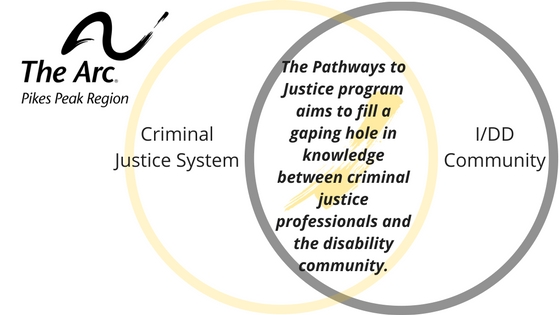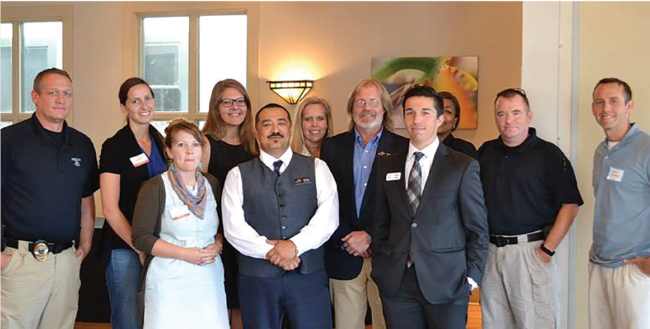Individuals with I/DD and their families are often caught in a gap in knowledge between the criminal justice system and the disability community, making it difficult to navigate the criminal justice system. One of the most extreme examples of the effects of this gap is the the number of individuals executed in the US based on false confessions — more than 60 since 1983 (Perke’s List).
The Arc Pikes Peak Region takes its work in the community very seriously, including its advocacy work in the criminal justice system. As one of five chapters of The Arc selected to pilot the Pathways to Justice Program (A program of The Arc’s National Center on Criminal Justice and Disability), The Arc Pikes Peak Region was recently featured in Empower magazine for its work to put Pathways to Justice into motion in the Colorado Springs community. Highlights from the Empower story are featured below. You can read the entire story in the summer 2016 edition of Empower magazine. Click here to download and read.
“Recently, their [The Arc Pikes Peak Region’s] Direct Response Team (DRT) had the opportunity to put their training into practice by working to divert a suspect with I/DD from the criminal justice system. A staff person with Pikes Peak Board of Cooperative Educational Services (BOCES) called their chapter with a crisis. BOCES staff stated that one of their clients — a 19 year-old with autism in transition services — met a girl who said she was of age, but was actually only 13. Allegedly, they ‘hooked up’ but did not have sex. However, the girl’s friends told their parents who subsequently reported this to authorities. The young man was in trouble, and BOCES staff hoped The Arc could help.
Thanks to the Pathways to Justice training, the chapter quickly reached out to Officer Sean Collins, one of their DRT members, to find out if the Sex Crimes Unit had interviewed him yet. Officer Collins called Sex Crimes Unit and informed them that he had a disability and learned that they hadn’t interviewed him yet, but would in the near future. The chapter staff asked Officer Collins to notify them when the young man was brought in for questioning, because it was critical that the suspect not be alone without representation or an advocate. Officer Collins agreed to this request and helped make arrangements. The quick coordination among just a few DRT members enabled The Arc to be involved early in the process. The small early intervention act will help ensure that the suspect obtains proper due process and is provided the assistance he will need every step of the way in the criminal justice system.”
If you or somebody that you know with I/DD needs help navigating the criminal justice system, we encourage you to contact one of our judicial advocates at (719) 471-4800, or stop by our office at 12 N. Meade Ave., Colorado Springs, CO 80909.
Click here to learn more about the National Center on criminal justice and disability.
Subscribe To Our Newsletter and SMS Reminders
The best way to ensure that you receive our newsletter, our event invitations, SMS reminders and other important information is to become a member of The Arc of the Pikes Peak Region.
The best way to ensure that you receive our newsletter, our event invitations, and other important information is to become a member of The Arc of the Pikes Peak Region.



